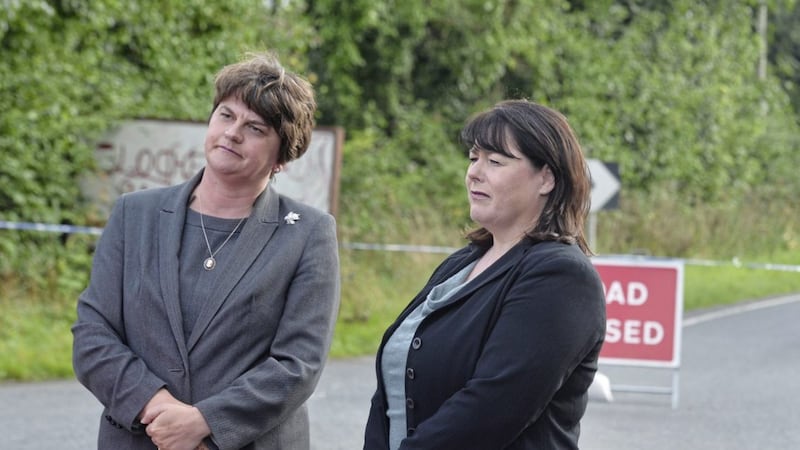After a week of covering a security situation in Northern Ireland that was far from the definition of peace time news reporting, it must now surely be a time for politicians to step back and reflect.
It is wrong to merely point the finger at the absence of Stormont as the reason for the recent increase in violence.
Attacks that have claimed lives happened during the period the assembly existed.
A dysfunctional assembly is arguably worse than none at all.
We had an executive that failed to pass any meaningful legislation, that dished out money for projects intended to tackle social deprivation to the chosen few and with the DUP and Sinn Féin failing to reach agreement on almost every big-ticket issue.
While we know more about how our devolved government worked thanks to the RHI evidence sessions, the findings of that probe have yet to be delivered.
The report expected sometime in the autumn will undoubtedly make uncomfortable reading for the DUP.
Also expected around the same time are John Boutcher’s findings into the IRA agent known as Stakeknife,
Operation Kenova’s report into the murders carried out either by or on the orders of the double agent, will shine a light back on our murky past.
It will rip the scab of a huge wound and - if the now retired Bedfordshire Police chief constable lives up to his promise – will be the most critical look at our past and the actions of intelligence services on directing our ‘war’ yet.
As if that wasn’t enough September will also see the second report by the Independent Reporting Commission with recommendations on how to tackle current republican and loyalist paramilitarism in the round.
Three reports looking at the past, present and future that will unleash all kinds of issues into the public domain.
If a restoration of the assembly remains off the cards for now, these reports can at least provide recommendations and a framework for going forward and hopefully help to prevent making the same mistakes of the past.
But that will only happen with the goodwill of those with political influence.
When Arlene Foster and MP for the area Michelle Gildernew agreed to be interviewed together regarding the recent bomb attack in Fermanagh it must have appeared like a good time to show a united front.
After all, who can forget the power of the imagery of Peter Robinson and Martin McGuinness standing side by side in condemnation after the murder of two soldiers at Massereene back in 2009?
However, within minutes it descended into an unedifying display of political division, an example of how increasingly far apart the parties are on almost every single issue.
Likewise, this week when South Belfast MP Emma Little Pengelly used perception rather than fact to attack the Victims Commissioner Judith Thompson, was there any consideration given as to what message this sends out in already troubled times?
Mrs Pengelly said the commissioner had “lost the confidence of a large swathe of the people whom her office is meant to represent”.
With the current secretary of state Julian Smith a close ally of the DUP it seems the party may be ready to use their influence to place someone more to their liking in what has been a vital post for healing.
Again, the language used around this important issue has been emotive and irresponsible at a time when tensions are already high.
Using victims and survivors as political currency has been one of the most shameful aspects of our peace process and one of the biggest hurdles to healing.
The ramping up of toxic political rhetoric looks set to continue regardless of the damage it’s causing.
And so, while this was an exceptionally violent week for Northern Ireland it is I fear not the last time I will be reporting on such events.








